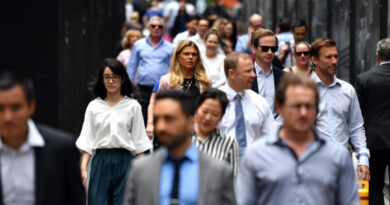Vance advocates for AI industry without stringent regulations or bias based on ideology.
The vice president stated that the Trump administration is willing to collaborate on artificial intelligence but would oppose strict regulation and ideological bias.
Speaking to global leaders in Paris on Feb. 11, Vice President JD Vance affirmed that the United States will continue to lead in artificial intelligence (AI) while resisting ideological bias and international efforts to control the advancement of this technology.
“I’m not here this morning to discuss AI safety, as was the theme of this conference a couple of years ago. I’m here to emphasize AI opportunities,” Vance declared at the Artificial Intelligence Action Summit.
Vance emphasized that the Trump administration believes that imposing regulations on AI would mainly benefit established developers while hindering the progress of one of the most promising technologies of our time.
The vice president outlined four core principles guiding the Trump administration’s approach to AI: maintaining U.S. leadership in AI development; avoiding excessive regulation that could stifle the industry; ensuring that AI is free from ideological bias and censorship; and promoting the integration of AI into the workforce to enhance productivity without replacing human workers.
Many world leaders are exploring ways to regulate the uses and applications of AI technology.
The EU law prohibits certain applications of AI, such as using AI to predict individual criminal behavior, deducing personal information for non-law enforcement purposes, or scoring individuals based on personal traits or behaviors.
The declaration—unsigned by the United States and the UK—urges its endorsers to support AI development that is “universal, inclusive, transparent, ethical, safe, secure, and trustworthy, aligned with global standards.”
While the U.S. did not sign the summit declaration, Vance expressed America’s willingness to cooperate internationally to advance AI technology.
“America seeks to collaborate with all of you, embracing the AI revolution with an open and collaborative spirit,” he stated.
“However, to establish trust, we need international regulations that nurture AI innovation rather than suffocating it,” Vance added.
Vance highlighted that a more lenient regulatory environment has empowered U.S. developers to innovate and heavily invest in AI research.
British Prime Minister Keir Starmer’s office clarified that the decision not to sign the Paris Declaration was based on national interests, ensuring a balance between opportunity and security.
European Commission President Ursula von der Leyen, in her remarks at the summit, emphasized the importance of AI safety and consumer confidence without excessive regulatory burdens.
She argued that the EU’s AI Act strikes a balance by providing a single regulatory framework for EU member states.
“We understand the need to simplify processes and reduce bureaucracy, and we will do so,” von der Leyen assured.
China aims to maintain strict regulations domestically while promoting open-source AI technology globally.
During the summit, Zhang Guoqing, China’s vice leader, expressed China’s desire to shape global AI development and standards.
Australia, Canada, and Taiwan have taken steps to restrict access to Chinese AI models, as have some U.S. states.
French President Emmanuel Macron urged European investors to consider Europe as a viable alternative to the U.S. and China in AI development during his remarks at the summit on Feb. 10.
Von der Leyen also introduced a new AI investment initiative, starting with an initial 50 billion euros (about $51.5 billion), with the aim to mobilize a total of 200 billion euros for AI investments in Europe.
The Associated Press and PA Media contributed to this report.





